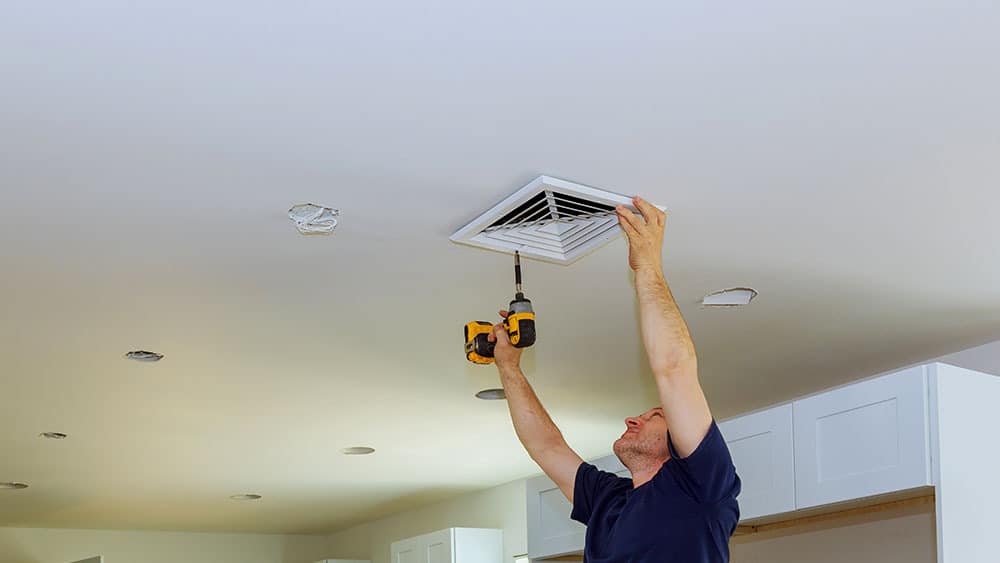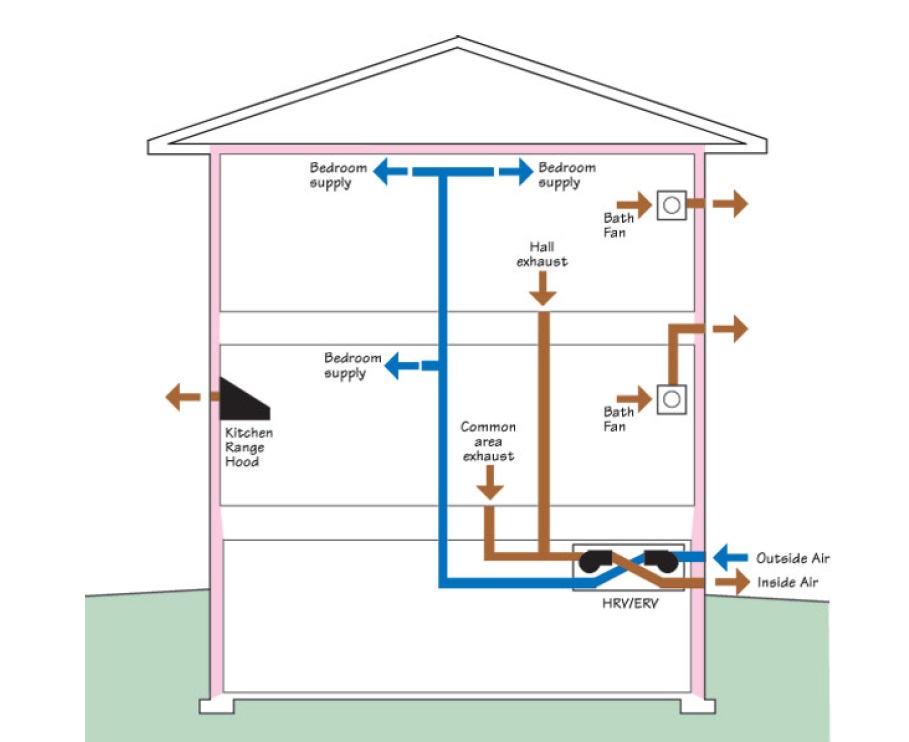How to Improve Indoor Air Quality with Home Ventilation Melbourne
The Function of Home Air Flow in Protecting Against Mold and Indoor Allergens
Home ventilation is an important part in maintaining a healthy and balanced indoor atmosphere. It controls humidity levels, which can prevent the growth of mold and mildew and the buildup of irritants. Numerous property owners forget the relevance of proper ventilation, usually causing hidden problems. Recognizing just how air flow systems feature and their influence on air high quality can be the trick to a healthier space. What actions can be taken to enhance these systems efficiently?
Comprehending Home Ventilation Systems
While many house owners may forget the importance of air flow, recognizing home air flow systems is crucial for maintaining interior air high quality and preventing mold and mildew growth - Home Ventilation Melbourne. These systems facilitate the exchange of stale indoor air with fresh exterior air, effectively minimizing pollutants and dampness levels. Common kinds include all-natural air flow, which depends on wind and temperature level differences, and mechanical ventilation, which makes use of followers and air ducts to manage airflow. Furthermore, well balanced ventilation systems incorporate both approaches to optimize air quality. Correctly developed and preserved ventilation systems can assist regulate temperature and humidity, ensuring a comfortable living atmosphere. Home owners need to consider elements like home layout, climate, and tenancy when picking an air flow system to ideal fit their demands and improve total air top quality
The Influence of Humidity on Mold Growth
Moisture plays an important function in mold development, making it a crucial factor for property owners to keep track of. Mold thrives in settings where moisture degrees exceed 60%, as these problems offer the dampness necessary for spores to sprout and proliferate. High moisture can arise from numerous resources, including bad air flow, water leakages, and food preparation or bathing activities. When moisture degrees remain elevated, mold can create quickly on organic materials such as drywall, timber, and textile. Home owners must make use of dehumidifiers and assure appropriate air flow in areas susceptible to moisture, such as cellars and shower rooms. Preserving interior humidity between 30% and 50% can substantially lower the danger of mold growth, adding to a healthier living environment.
Recognizing Common Indoor Allergens
Interior settings can nurture a variety of allergens that affect health and wellness and convenience. Common interior allergens include dust termites, family pet dander, mold and mildew spores, and pollen. Allergen flourish in bed linens, carpetings, and furniture, feeding upon natural product and adding to respiratory system concerns. Family pet dander, made up of small flakes from skin and hair, can trigger allergies in delicate people. Mold and mildew spores, usually existing in wet locations, can multiply and influence air high quality. Additionally, pollen can infiltrate homes via open windows or on apparel. Identifying these allergens is vital for preserving a healthy and balanced indoor environment. Understanding of their presence allows home owners to take proactive steps to decrease exposure and boost general indoor air quality.
Benefits of Proper Ventilation
Appropriate ventilation is vital for maintaining a healthy indoor setting, as it aids to manage air top quality and decrease the build-up of pollutants. Appropriate air flow assists in the exchange of interior and exterior air, consequently watering down damaging compounds such as unstable organic compounds, allergens, and dust. This process not just enhances convenience however likewise adds to the overall well-being of residents by reducing respiratory system problems (Home Ventilation Melbourne). Appropriate air flow properly regulates humidity levels, decreasing the likelihood of mold development and cultivating a drier atmosphere conducive to health and wellness. Additionally, it can improve power effectiveness by making sure that heating & cooling systems operate more successfully, causing lower energy expenses. Overall, correct air flow is a vital component in advertising a safe and healthy and balanced home

Tips for Improving Home Air Flow
Numerous house owners might ignore it, enhancing home ventilation is necessary for improving air high quality and avoiding mold and mildew growth. One reliable method is to routinely open windows to promote cross-ventilation, enabling fresh air to distribute. Setting up exhaust fans in washrooms and cooking areas can effectively remove moisture-laden air, decreasing humidity levels. Property owners need to likewise think about utilizing air cleansers with HEPA filters to catch contaminants and irritants. Regularly keeping cooling and heating systems, consisting of altering filters, warranties come visit the website to a head air flow and effectiveness. Securing leaks around doors and windows useful source can avoid outside air from getting in, which aids preserve a consistent interior setting. Ultimately, incorporating houseplants can normally boost air high quality while adding visual value to the home.
Often Asked Questions
How Typically Should I Clean My Home Air Flow System?
Establishing just how often to cleanse a home ventilation system depends on different variables, including usage and ecological conditions. Home Ventilation Melbourne. Typically, experts suggest a detailed cleansing every 3 to 5 years to preserve perfect air flow and efficiency
Can Plants Help In Reducing Indoor Allergens?
Research study shows that particular indoor plants may help in reducing irritants by improving air top quality and enhancing moisture. Their performance varies, and keeping a clean environment stays important for taking care of interior irritants properly.
What Sorts Of Air Filters Are Finest for Mold Avoidance?

Exist Particular Ventilation Demands for Cellars?

Exactly how Do I Know if My Ventilation Is Functioning Successfully?
To identify effective air flow, one must monitor humidity levels, examine air movement with vents, and observe signs of condensation or stationary air. Normal analyses can indicate whether the system adequately circulates and exchanges indoor air.
Understanding how ventilation systems function and their impact on air high quality can be the key to a much healthier living area. While several home owners might neglect the value of ventilation, recognizing home air flow systems is necessary for maintaining interior air quality and avoiding mold development. Common kinds consist of natural air flow, which depends on wind and temperature differences, and mechanical air flow, which makes use of fans and air ducts to manage airflow. Appropriate air flow is vital for preserving a he has a good point healthy and balanced interior environment, as it helps to control air top quality and reduce the accumulation of contaminants. Several home owners may ignore it, boosting home ventilation is important for boosting air high quality and avoiding mold growth.